Hello and welcome back to What China Wants.
One of the most commonly held notions about China in the West is that the authorities there have a dismal record on human rights. There are weekly, if not daily reports in the press about Beijing’s latest assault on its peoples, whether it be Uighur camps, or the crackdown in Hong Kong, or the erasure of Tibet’s indigenous culture.
There are however many who disagree with (and robustly reject) the labelling of Beijing as a habitual breaker of human rights.
To get to the truth of the matter and to understand more about China and human rights, we are joined today by Benedict Rogers, a noted veteran on human rights and a co-founder of the NGO Hong Kong Watch.
We discuss the following points:
It is important to differentiate between China and the Chinese Communist Party (CCP).
In Benedict’s view, the Hong Kong National Security Law is very draconian. But did the authorities have no choice but to introduce such a law given the unrest on the streets?
The Uighur situation in Xinjiang is something that some lawmakers in the West are increasingly referring to as genocide. We debate whether what is happening there is what Beijing claims it is - anti-terror operations.
We discuss the accusations of organ harvesting by the Chinese state, for example from Falun Gong activists.
Christianity is seen as a threat by the CCP, and we hear how Christians are being treated in China today.
North Korea is being propped by by China, and we hear Benedict’s thoughts as to why.
(As a postscript to this, it might be of interest to note that when we were searching for images of The China Nexus to use here, we found that Google categorised the book as “fiction”. Is this Beijing getting at Benedict through the US company? Or is it a reflection on Google’s own algorithmic beliefs? We will let you read into this what you will…)
You can also listen to the podcast on Apple, Amazon, or Spotify.
As always please do share, comment, and subscribe. We’ll be back soon with more What China Wants.
Many thanks for listening.
***
Here is the transcript:
Sam Olsen: Hello, and welcome back to What China Wants with me, Sam Olsen and of course, Stewart Paterson. We normally talk about the economic and political elements of China and its influence around the world on our podcast, but one of the things that comes up time and time again, in the press, especially in the Western press, is China's attitude to human rights. Indeed, many would argue that China's relationship with human rights is absolutely crucial to understanding its economic and political programmes. And there is no one in Britain certainly, who is more famous for his stance on China's human rights record, than our guest today - Benedict Rogers.
Ben is the co-founder of the NGO Hong Kong Watch and has been very much in the news the last few years, as Hong Kong has slid under the waves of the National Security Law. But he has also done many other things in Asia to do with human rights, for example, being the co-founder of the International Coalition to Stop Crimes Against Humanity in North Korea and is the Deputy Chairman of the Conservative Party's Human Rights Commission, full stop. He is also on the advisory board of the Inter-Parliamentary Alliance on China, and has been in fact, visiting China for a very long time. And so if there is someone that actually we want to talk to who knows about China and human rights, it is Ben Rogers. Thank you very much for joining us today.
Benedict Rogers: It is a great pleasure, Sam, great to be with you. Thanks for inviting me.
SO: The reason we have got you on is because you have just written a new book called The China Nexus, which steps out the attitude of China to human rights in lots of different areas from Tibet to Hong Kong to Taiwan, and North Korea, of course.
My first question is that people would and often do criticise critics of China and its record on human rights and its record on other things not to Western sensibilities, of being 'anti-Chinese'. But you say in your book this is not the case, you are not anti-Chinese, you are anti-CCP, the Chinese Communist Party. How do you reconcile that difference? Because surely, there has to be an element of not liking what China as a whole stands for a given that the CCP is in control of the country?
BR: Well, I think it is incredibly important to make this distinction, because what the CCP want to put out as a narrative is that the CCP and China are one and the same and they are not at all. China predates the CCP by many, many centuries, and is a great ancient culture and civilization that has given the world so much. I would say not only am I not anti-China, I am actually very pro-China as a country, as a culture, a people. I first went there when I was 18, to teach English in Qingdao for six months, made lots of friends there. And it is because I'm pro-China that I want the people of China to have their human rights, their human dignity respected, and it is the CCP that is the threat to those basic human rights. So making that distinction, I think, is not only possible, it is essential.
Stewart Paterson: Thanks, Ben, can we just talk a little bit about Hong Kong, then as a starting point in this discussion. Many of our listeners will have lived in Hong Kong at some point in their lives, and will remember it as being a very free society. Tragically, that appears not to be the case anymore. Perhaps we could just start by just outlining how repressive you think the National Security Law is, and to what extent that has actually diminished Hong Kong as a jurisdiction in which to live and in fact, to do even business?
BR: Well, I think the National Security Law is one of the most draconian laws that I have ever seen in all my years of working on human rights issues. And part of the problem with the National Security Law is that it is so vaguely defined, and the red lines keep moving, so one cannot be certain from one day to the next, whether what one says or does might be a violation of the National Security Law. But its impact has been that civil society has almost completely been shut down, certainly civil society of any political meaning. Civil society that is engaged with social issues probably is continuing, but human rights groups, political advocacy, trade unions are all pretty much shut down.
It has completely silenced a democratic movement. Most pro-democracy leaders in Hong Kong are either in prison or in exile or keeping their heads down and keeping a low profile. Just anecdotally, before the National Security Law came in, I was in pretty much daily contact with dozens of people in Hong Kong. I am now not in contact with basically anybody in Hong Kong because all the people I know are either in jail, or they are in exile - in which case I am in touch with them - or they are keeping their heads down and I do not want to endanger them. The other important thing to say is that of course, press freedom has been totally dismantled as a result of this law.
SP: And some of the people who have been imprisoned as a result of this National Security Law are in fact, British citizens. Is that correct?
BR: That is correct. So, the most high-profile example is, of course, Jimmy Lai, the founder of the Apple Daily newspaper, and he is a British citizen. He has been in jail now for more than two years on multiple charges and faces his National Security Law trial later this year. At the age of 75, it is unlikely with all the charges that he is facing, that he will come out of jail, he will probably spend the rest of his years behind bars.
SO: Okay, so it is very, very sad from, from a human rights point of view that Jimmy is imprisoned, but also the people that have been exiled it is, for them, a tragedy. But Beijing and people that support Beijing within the former colony, will always say that the reason that the National Security Law had to come in was because there was too much trouble being made on the streets, and it was damaging Hong Kong's position as a city of international business. And the fact that it was the protesters that started it, perhaps backed by the CIA, which is something which is commonly referred to. And actually, if that had not happened, if there had not been pro-democracy protests, then the Chinese authorities would not have been forced to clamp down on this. And so, Beijing would argue that the National Security Law, and all of the things that surround that, are actually designed to make Hong Kong a better place to live for the people. How do you respond to that?
BR: Well, I think that it is certainly, I think, quite likely that the National Security Law was introduced at the time and in the way that it was as a result of the protests in 2019. But I think what I would dispute is the idea that it would never have happened at all. I think the consequence of the 2019 protests was probably to accelerate the crackdown. But I think the crackdown was coming anyway. And in fact, we already saw indicators of that even before 2019. We saw the disqualification of a number of pro-democracy legislators who had been elected, we saw the abduction of the Causeway Bay booksellers, the imposition of mainland Chinese law at the High Speed Rail Terminus. So this kind of creeping erosion of Hong Kong's freedoms was already happening. And I think the National Security Law in some form would have come anyway. I mean, Beijing was wanting the Hong Kong government, of course, to introduce Article 23, the anti-subversion law, and instead, because of the 2019, protests, Beijing imposed, without any consultation with Hong Kong, this National Security Law.
The other thing I would dispute, of course, is the idea that the 2019 protests were Western-backed or Western-initiated, CIA-initiated/ I think not only is that nonsense, I think it is actually insulting to the people of Hong Kong, because it implies that they are not able to think and act for themselves. They are perfectly able to think and act for themselves and the 2019, protests, whatever your view of them, were a genuine initiative by thousands of Hong Kong people, of course, initially in opposition to the proposed extradition law, and then it transformed into a broader pro-democracy movement. But the international community morally expressed support but certainly didn't initiate them.
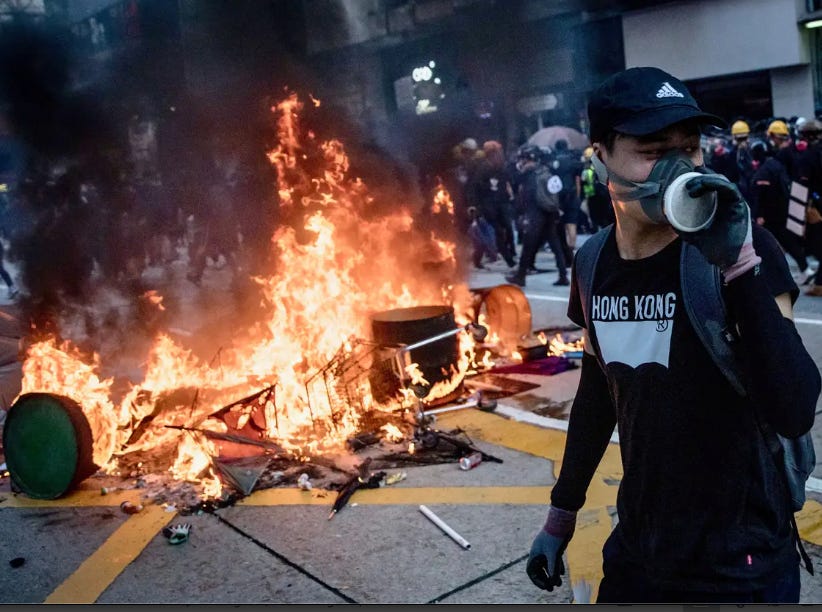
SP: So in a similar vein, maybe we should talk a little bit about Xinjiang then, because that is the other subject that is most front of mind in in the Western media when they think of China and human rights. The camps were first of all denied in terms of even their existence, I believe, by the CCP. They, I think, clearly exist. The Chinese would argue that there was terrorist activity in Xinjiang, that they have successfully reduced the level of terrorist activity, if not eliminated it, and therefore these camps need to be thought of as a method of integrating the minorities into mainstream society. Why do you disagree with that? And what evidence is there that there is more to it than that sort of argument?
BR: So I think there are two points. Although the CCP initially denied the existence of the camps, actually, they do now acknowledge their existence. They call them something different. They call them vocational re-education centres, but they do at least acknowledge that they exist.
Secondly, on the question of terrorism. I would certainly acknowledge that there were a few terrorist incidents, that there were a small minority of Uyghurs that did engage in what we would regard as terrorist acts. But the idea that a million. perhaps as many as two or three million Uyghurs are all terrorists, or that they al support such acts, and that they all deserve to be locked up in these camps is absurd. And I worry that in the long term, the totally disproportionate and horrifically repressive response of the CCP towards the Uyghurs is actually counterproductive, because it is going to sow further resentment. I hope this does not happen, I hope particularly for the sake of the Uyghurs that this does not happen, but it has the potential to transform into more terrorism, not less.
And crucially, what is happening in Xinjiang has actually been increasingly regarded by a growing number of experts as a genocide. Both the former US Secretary of State and the current Secretary of State have designated it genocide, several Parliaments have done so. And crucially, an independent tribunal a couple of years ago, chaired by very respected British barrister Sir Geoffrey Nice, who had been the prosecutor of Slobodan Milosevic, they came to the conclusion that this is a genocide. It is not just the camps. It is forced abortions, forced sterilisation, forced organ harvesting, forced labour, and very severe religious persecution of Muslims. So, it is a really horrific assault on the Uyghurs of Xinjiang.
SP: Some of our listeners might not be so aware, but as you have alluded to there, in addition to the camps that the Chinese authorities would claim were 're-education camps', there is a sort of conservative effort as I understand it, to eradicate Uyghur culture more broadly. Can you just give us some examples of activity orientated around that?
BR: Yes, absolutely. Looking first at the religious culture of Uyghur Muslims, it is now highly likely that if you are a Uyghur with a beard of a certain length, or you are wearing a hijab, or you are fasting during Ramadan, you abstain from pork or alcohol, or you are reading the Quran, all of those acts are enough to land you potentially in a prison camp. Many mosques have been destroyed or closed, Uyghur Muslim cemeteries have been desecrated and closed. And crucially, the CCP has a policy for those who are not in the prison camps, of moving into Uyghur homes, literally sending officials to live with Uyghur families in order to monitor their activities 24 hours a day, seven days a week. And the Uyghur language I think is also now very much under threat. It is really a process to turn Uyghurs, culturally at least, into Han Chinese.
SP: Perhaps that is an important point that we just need to explain to those less familiar with it. Xinjiang has not always been part of China has it? In fact, I think, is it a semi-autonomous region notionally, in terms of the sort of constitutional existence even if in fact, it is ruled directly from Beijing?
BR: That is exactly right. Throughout history, it has sort of changed hands, and the borders have changed at different times. But yes, that is right. Currently, it is supposed to be a semi-autonomous region but in reality, it is totally ruled by Beijing,
SO: There will be people listening to this, especially many of our Chinese listeners, who will deny that many of the worst things that you said are happening in Xinjiang. They will say that a lot of the evidence has been planted, and perhaps made up and fabricated, but instead, going back to Stewart's point, it is all about terrorism. And in fact, the parallel that has been drawn from me by a number of mainland Chinese over the years has been with Northern Ireland and the fact that the British did internment in Northern Ireland against people from the Catholic background. And not only that, but they look at the wider record of human rights within the West, especially the treatment of prisoners and the black population in America, and say that the West has got its own problems with human rights. And so, how dare we have a go at China, when actually it is not a question about human rights, it is a question of misunderstanding the way that China needs to get to grips with controlling a population for the sake of the wider population.
Again, Ben, surely there is something to this because China has got 1.4 billion people, it is a huge landmass, it has got a culture very different to that in the West. Isn't it fair to say that there are parallels between what we in the West are doing to keep our society safe and what the Chinese are doing?
BR: Well, I think firstly, it is definitely important for Western countries to acknowledge our faults, to acknowledge that we are far from perfect, but that does not mean we should not speak out on human rights issues in China. I think one key difference is that when bad things happen in Western countries or by Western governments, because we are open democratic systems, we have, by and large systems of justice and accountability; when these things are exposed, people are held to account both through press scrutiny but also through judicial ways. And that does not happen in China. The other thing I would say is that the abuses that occur in the West, by and large, I would say are not systematic. They are the acts of bad actors in the system rather than the system itself whereas in China, it is the system itself that is responsible.
On the question of evidence for what is happening in in Xinjiang, I think it is remarkable given how limited access is and how closed the Xinjiang region is to outsiders, it is remarkable how much evidence has emerged through the testimonies of survivors who have managed to escape, through satellite footage, and crucially, through several Han Chinese journalists who have, at great risk to themselves, gone into the region to see the situation for themselves. I do not recall his name, but there was a very brave Chinese reporter who put out a film I think through AP, a couple of years ago. There is also a remarkable guy, Shawn Zhang, in Canada, who went through satellite imagery to prove that the camps exist. So it is not just Westerners that are doing this, there are some very brave Chinese who have helped expose the situation.
SP: Ben, you mentioned fleetingly human organ harvesting. And obviously, this has been a story or a reality that has been around for a while; in fact, some has been admitted to by the Party, but has been dismissed as what, as you described, sort of bad actors, rogue actors within the Party abusing their power. Is there substantial evidence that human organ harvesting, by which we mean here - just for sake of clarity - the forced removal of organs from living donors for medical purposes, and they are usually prisoners, or at least that is the accusation, often prisoners of conscience. Is there a credible body of evidence that this has been going on, and that it has been done with official approval in a sort of systematic way?

BR: There is, indeed. When I first came across this issue, probably six or seven years ago, I was initially quite sceptical because it sounded so appalling and shocking, I thought “Can this really be happening?” Also, of course, the evidence is very difficult to find, unlike other human rights violations; by definition, there are not really any survivors and the people who carry it out are the only witnesses, so it is difficult to prove. But there is a growing body of evidence, both through a number of witnesses or survivors who have talked about it. There is a very brave Uyghur surgeon, Enver Tohti, who has publicly admitted to taking part in an operation to remove human organs from a prisoner.
But crucially, and I mention him again, Sir Jeffrey Nice KC, a few years ago, chaired an independent inquiry into this very issue. What was important about that tribunal was that it was made up of people who had no previous involvement, either in this particular issue or in China human rights. So they were coming at it entirely independently, but with great expertise, and it consisted of Sir Geoffrey Nice, and a very prominent surgeon, and a number of other lawyers and academics. They heard many hours of evidence and lots of written evidence as well, all of which can be found on the China Tribunal website, which I think is chinatribunal.com. They came to the conclusion at the end of a very exhaustive process that this is happening, and that it amounts to a crime against humanity. So in terms of the evidence, it is all there on the China Tribunal website.
SO: A country which has definitely got a problem with human rights is North Korea. Now you have been studying North Korea for a while, and you mention it in your book, The China Nexus. But today, you might have seen the news that they fired two more ballistic missiles off the east coast. and Kim Jong-un's sister is now upping the ante about using the Pacific as a firing range for their testing, and basically just pushing back on America and South Korea, and Japan, of course. To what degree though, is the stability of the regime in North Korea, helped by China, and, if indeed China is helping to prop up that regime, why?
BR: So definitely, China is helping to prop up that regime. I would say that without the economic lifeline, the political and diplomatic lifeline that China provides, the regime might well not survive. Why is China propping it up? I think, primarily because it does not want a unified Korea, and it certainly does not want to unified pro-Western, democratic Korea on its doorstep. I would say that I think the relationship between China and North Korea is not easy, and China is not necessarily in favour of everything Kim Jong-un's regime does. But it is a sort of marriage of convenience because China regards North Korea as its patch, and it wants a regime that it can prop up and influence rather than either a regime that collapses and there is instability, or a unified democratic Korea.
SO: And of course, South Korea, is increasingly Christian; I think someone told me that it is one-third Christian now with very much the evangelical wing of the religion, but with a large Catholic population too. Christianity is something else you write about and something that I have been thinking about for a long time in terms of China's adoption of that religion. It is now said that there are more Christians, or Protestants in fact, let alone Christians as a whole, in China than there are members of the Communist Party. And again, I have heard from Chinese friends saying that this represents a threat to the stability of the Chinese Communist Party and it is therefore not a wonder that the CCP is clamping down on Christianity in the country. To what degree are Christians under threat there? And do you think that they do represent a threat to the power of the CCP moving forward?
BR: Certainly, the persecution of Christians under Xi Jinping has intensified to a level not seen probably since the Cultural Revolution. There was a period in the 1980s, 1990s, and early 2000s, where the picture for Christians varied throughout the country because it was much more dependent on the attitude of the local provincial authorities than Beijing. And there were parts of China where things were a bit more relaxed, and unregistered Christian churches - sometimes quite large ones - were tolerated, a blind eye was turned and it was a sort of grey area. Now under Xi Jinping, most of those unregistered churches have been shut down, lots of people been jailed.
And then there is the state-controlled Church, which has always existed under the CCP. In those state-controlled churches, there is now a campaign by the CCP to have pictures of Xi Jinping on the wall alongside, or sometimes even instead of, religious imagery, to have CCP propaganda banners in the church, surveillance cameras monitoring everybody who is coming to the church. People under the age of 18 are prohibited from going to places of worship. And I have also been told that on WeChat, or Weibo, if you share a hymn or a verse from the Bible, that very swiftly disappears, and you can end up in trouble for doing so. So it is a very severe crackdown. Why does the CCP fear Christianity? I think it fears any idea that is different from its own ideology, and that has the ability to bring people together in large numbers. That is what it fears. And Christianity is a prime example of that.
SO: Ben, thank you so much for that, and it has been a very interesting conversation. But I have got one final question, which I think I need to ask you, and it is certainly something that the business people listening to this will want me to do, and that is around China, human rights and actually doing business with China. Because many would argue that trade and the exchange of economic activity is the only way that we are going to be able to make China more like us and to improve the lives of the people within China - and actually the focus on human rights, the perhaps narrow focus on human rights, that NGOs such as Hong Kong Watch, and others in the West, look at and publicise, is actually doing harm for the long term development of China - and therefore, we should probably just keep quiet and let the business people do their work, to make everyone richer and more prosperous. And by that we would make life better for everyone in China and the West. Obviously, I am pretty sure you are not going to agree with that. But for those listeners, why wouldn't you agree with that?
BR: Well, I think for several reasons. I was actually of the view in the 1990s and first decade of the 2000s, as it looked like China was opening up, relaxing, certainly opening up economically, but relaxing, to some extent, politically. There was some space, albeit restricted, for some degree of civil society. There were Chinese lawyers who I met who were defending human rights cases within China. And so, at that time, I was much more optimistic about this idea that engaging and trading with China is the way to open it up. And I was, at that time quite low-key on the human rights questions publicly. I think I would say that approach simply did not work. And it simply emboldened the CCP to become even more repressive at home, and also even more aggressive abroad. I think the connection between what the CCP does at home and abroad is clear, and therefore it is in our interest to speak out and to hold the CCP accountable for its human rights violations because ultimately, they are becoming a growing threat to our freedoms as well. That does not mean we should not trade at all. But I think we should be much more strategic about our business relationship, and much bolder in speaking out for our values.
SO: Great, well thank you very much, Ben. And your book, The China Nexus, is out now. It has been great speaking to you. I am sure this is going to encourage a lot of debate on our comments' pages. If you would like to comment, please do, on What China Wants. Stewart and I will be back next week for more discussion on China and its influence abroad. Thanks, Ben. Goodbye.
BR: Thank you very much.






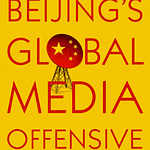
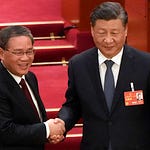
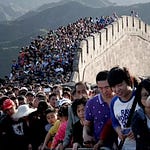


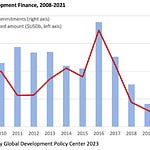
Share this post